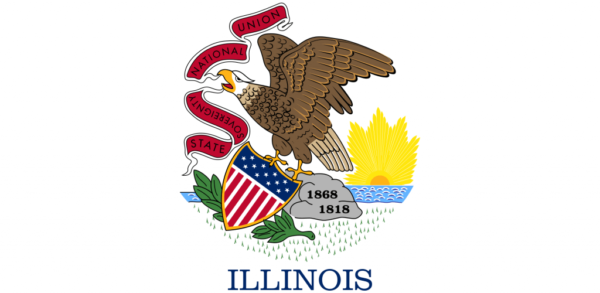On November 3, 2020, five states had initiatives on the ballot to legalize the recreational and/or medical use of marijuana, and all five initiatives easily passed. Arizona, Montana, and New Jersey voted in favor of legalizing the possession and recreational use of marijuana for adults aged 21 years and older. In addition, South Dakota became the first state to legalize both medical and recreational marijuana at the same time. Mississippi voted to legalize medical marijuana. Employers may want to consider the impact of these new laws, as well as watch for new developments.
Arizona
Voters in Arizona decisively passed Proposition 207, the Smart and Safe Arizona Act, to legalize recreational marijuana. Before the election, we urged employers to keep an eye on Proposition 207 and to consider reviewing their substance abuse policies. Now, both medical and recreational marijuana are officially legal in the state of Arizona. The newest law will impose a 16 percent tax on recreational marijuana sales to fund public programs across the state. Recreational marijuana sales can begin in early 2021 once the Arizona Department of Health Services issues business licenses.
Proposition 207 appears to preserve employers’ ability to maintain and enforce zero-tolerance drug-free workplace policies. Although the statute does not provide any explicit job protections for employees, employers may still want to review their drug policies, decide whether to continue to enforce zero-tolerance policies for marijuana, and consider how policy decisions may affect the ability to attract and retain talent. Employers that decide not to allow off-duty use of legal recreational marijuana may want to ensure their policies accurately reflect this and that employees understand the policies. Otherwise, employers may risk losing good employees due to a misunderstanding of company policies.
For more information, please join us for our upcoming webinar, “Arizona’s Legalization of Recreational Marijuana: What Employers Need to Know,” on Monday, November 23, 2020, from 12:00 p.m. to 1:00 p.m. MST). Register for this timely program here.
Mississippi
Mississippi voters overwhelmingly approved Initiative Measure No. 65—a citizen-driven ballot initiative. Initiative Measure No. 65 will amend the Mississippi Constitution to create a state medical marijuana program. The program, which reflects a traditional medical marijuana law, lists over 20 qualifying conditions for medical marijuana cardholder status. The program will allow physicians to certify medical marijuana treatment for individuals who suffer from qualifying conditions. The deadline for the program to be operational is August 15, 2021.
In approving Initiative Measure No. 65, voters rejected a more restrictive measure (Alternative Initiative Measure No. 65A) proposed by the Mississippi Legislature. The legislature’s proposal would have limited medical marijuana access only to terminally ill patients and those with undefined “debilitating medical conditions.”
Importantly, Initiative Measure No. 65 does not contain any express protections for applicants for employment or employees, nor does it prohibit testing for marijuana. Such protections, which are often referred to as “antidiscrimination provisions,” typically prohibit discrimination against medical marijuana cardholders based on their cardholder status. While Mississippi’s new medical marijuana law does not contain an antidiscrimination provision, employers may want to be careful when handling medical marijuana issues to ensure that they are not running afoul of disability discrimination laws.
Montana
Montana voters passed Statutory Initiative 190 (I-190) and Constitutional Initiative 118 (CI-118), which legalized the possession, purchase, and use of 1 ounce or less of marijuana or 8 grams or less of marijuana concentrate by persons over the age 21. Neither law provides express protections for job applicants or employees or prohibits testing for marijuana. Specifically, I-190 permits employers to discipline, discharge, or refuse to hire an employee or job applicant for violating a workplace drug policy or being under the influence of marijuana while working. Both laws are similar to the current Montana Medical Marijuana Act—which also does not provide employment protections for medical marijuana cardholders in Montana. The new laws are set to go into effect on January 1, 2021.
New Jersey
New Jersey citizens voted overwhelmingly (by a 2-to-1 margin) in support of Public Question No. 1, which asked whether they approved of amending the New Jersey Constitution to legalize the possession and recreational use of marijuana for adults aged 21 and older in New Jersey. While Public Question No. 1 does not contain express protections for applicants for employment or employees who use recreational marijuana, and while marijuana remains an illegal drug under federal law, employers doing business in New Jersey can continue to expect issues associated with marijuana to cause headaches at the workplace.
For instance, the Jake Honig Compassionate Use of Medical Cannabis Act, which Governor Phil Murphy signed into law on July 2, 2019, and which replaced New Jersey’s former Compassionate Use of Medical Marijuana Act (CUMMA), contains several express employment protections for medical marijuana users. First, the Honig Act makes it unlawful for an employer to take any adverse employment action against an employee who is a registered qualifying patient “based solely on” the employee’s status as a user of medical marijuana. The Honig Act also establishes a procedure that an employer must follow when an applicant or employee tests positive for marijuana.
If an applicant or employee tests positive for marijuana, the employer is required to (1) provide written notice of the right to provide a valid medical explanation for the test result and (2) offer an opportunity to present a valid medical explanation for the result. The applicant or employee then has three working days after receipt of the written notice to explain the result or request a retest of the original sample at the individual’s own expense. A valid medical explanation for the result may include an authorization for medical marijuana issued by a health care practitioner or proof of registration with the Cannabis Regulatory Commission. In addition, the Honig Act includes a carve-out which permits an employer to take an adverse employment action against a medical marijuana user if the employer’s accommodation of the applicant’s or employee’s use of medical marijuana “would cause the employer to be in violation of federal law … or … would result in the loss of a federal contract or federal funding.”
Interestingly, however, the Honig Act is silent as to whether an employer can take adverse employment action against an employee who nonetheless provides a valid medical explanation for the result. To date, no New Jersey court has addressed the issue of whether an employer can enforce a “zero tolerance” or “drug-free workplace” policy against medical marijuana users. Likewise, a New Jersey court has not squarely decided the issue of whether an employer has an obligation to accommodate the use of medical marijuana by its applicants or employees.
Presumably, however, if an applicant or employee were unable to provide a valid medical explanation for a positive drug test, the employer would be justified in taking adverse employment action against the applicant or employee for the use of an illegal drug. This would likely remain true even though New Jersey will legalize the recreational use of marijuana by adults age 21 and older effective January 1, 2021, pursuant to Public Question No. 1. In this regard, it is worth noting that, unlike some other states, New Jersey does not have any off-duty conduct law that protects employees from adverse employment action based on their off-duty conduct. Thus, it is unlikely that an applicant or employee could assert a claim against an employer for having been subjected to adverse employment action because of a failed drug test due to the recreational use of marijuana, particularly since marijuana remains an illegal drug under federal law. Similarly, nothing about New Jersey’s efforts to legalize the recreational use of marijuana would appear to restrict an employer from maintaining policies prohibiting, or authorizing adverse employment action based on, the possession or use of intoxicating substances during work hours or on workplace premises outside of work hours. However, an employer that maintains “zero tolerance” or “drug-free workplace” policies may want to tread carefully in light of Public Question No. 1’s amendment to the New Jersey Constitution and the requirements and restrictions of the Honig Act.
For more information, please join us for our upcoming webinar, “What New Jersey’s Legalization of Recreational Marijuana Means for Employers,” on Tuesday, November 17, 2020, from 2:00 p.m. to 3:00 p.m. EST. Register for this upcoming program here.
South Dakota
Voters in South Dakota made their state the first to approve both recreational and medical marijuana measures simultaneously. South Dakota Constitutional Amendment A, the Marijuana Legalization Initiative, allows for the recreational use of marijuana for individuals 21 years and older (and for possession of up to 1 ounce). South Dakota residents who do not live in a jurisdiction containing a licensed, retail marijuana dispensary may grow up to three marijuana plants in a private residence. The amendment does not contain protections for employees’ use of marijuana, and it specifically allows employers to continue to restrict the recreational use of marijuana by their employees.
South Dakotans also passed Initiated Measure 26, which will establish a medical marijuana program for individuals with “debilitating medical condition[s]” and allow for possession of up to three ounces of marijuana. Unlike Constitutional Amendment A (which does not establish affirmative rights for recreational users), Initiated Measure 26 mandates that “qualifying patient[s]” who are prescribed medical marijuana be afforded the same rights that they would have under state and local law if their prescriptions were for, instead of marijuana, a “pharmaceutical medication”—including with respect to “[a]ny interaction[s] with [their] employer[s]” and “[d]rug testing by [their] employers.”
While the protections of Initiated Measure 26 appear to prohibit employers from specifically targeting medical marijuana patients, including for the purposes of drug testing, the measure allows employers to prohibit employees from ingesting marijuana in the workplace and/or from working “while under the influence of cannabis.” The new law attempts to define “under the influence” by stating that medical marijuana patients may not be considered under the influence “solely because of the presence of metabolites or components of cannabis that appear in insufficient concentration to cause impairment.” The subjective nature of this definition may cause some confusion down the road.
South Dakota employers may want to be careful not to treat medical marijuana patients differently from other employees, keeping in mind that the law permits employers to prohibit the use of marijuana in the workplace (though the question of what constitutes working while “under the influence” may arise).
This article was drafted by the attorneys of Ogletree Deakins, a labor and employment law firm representing management, and is reprinted with permission. This information should not be relied upon as legal advice.




